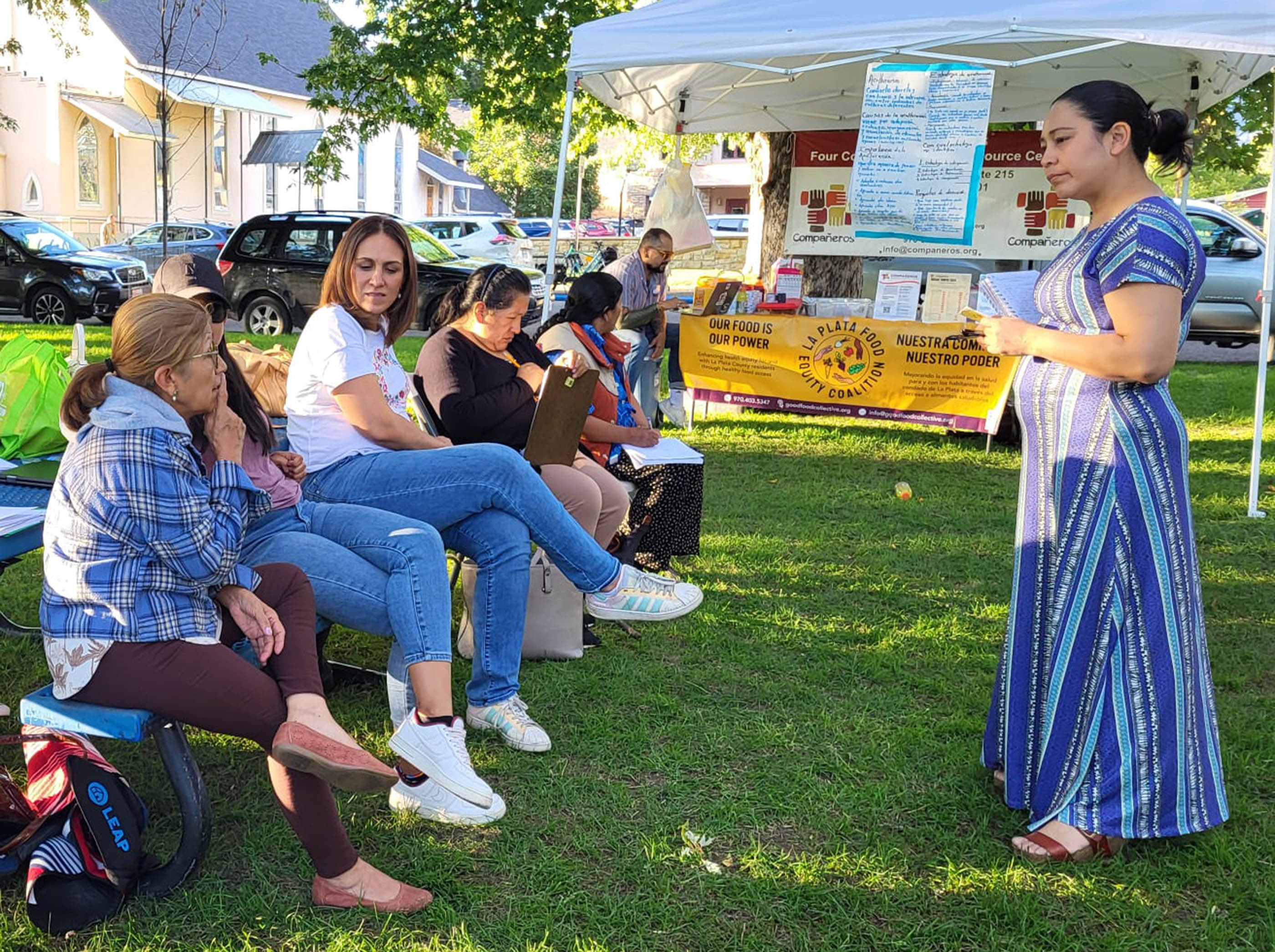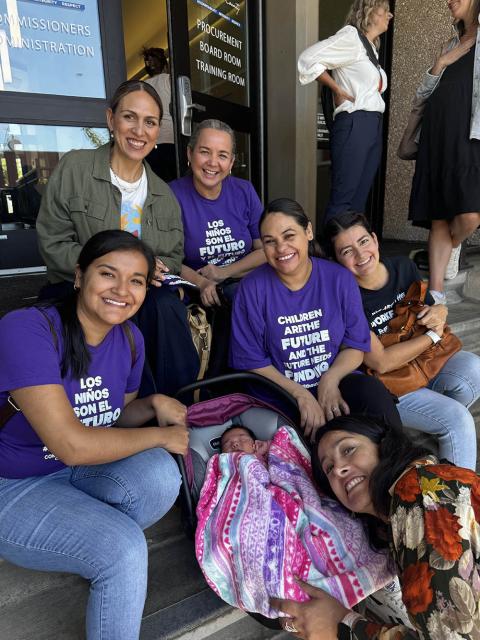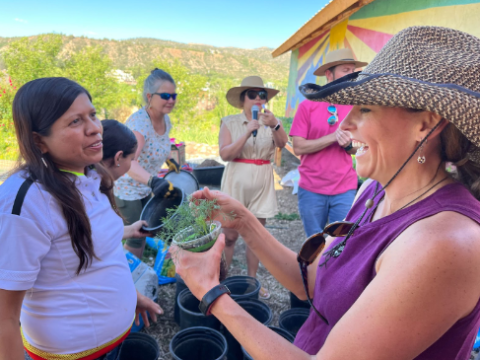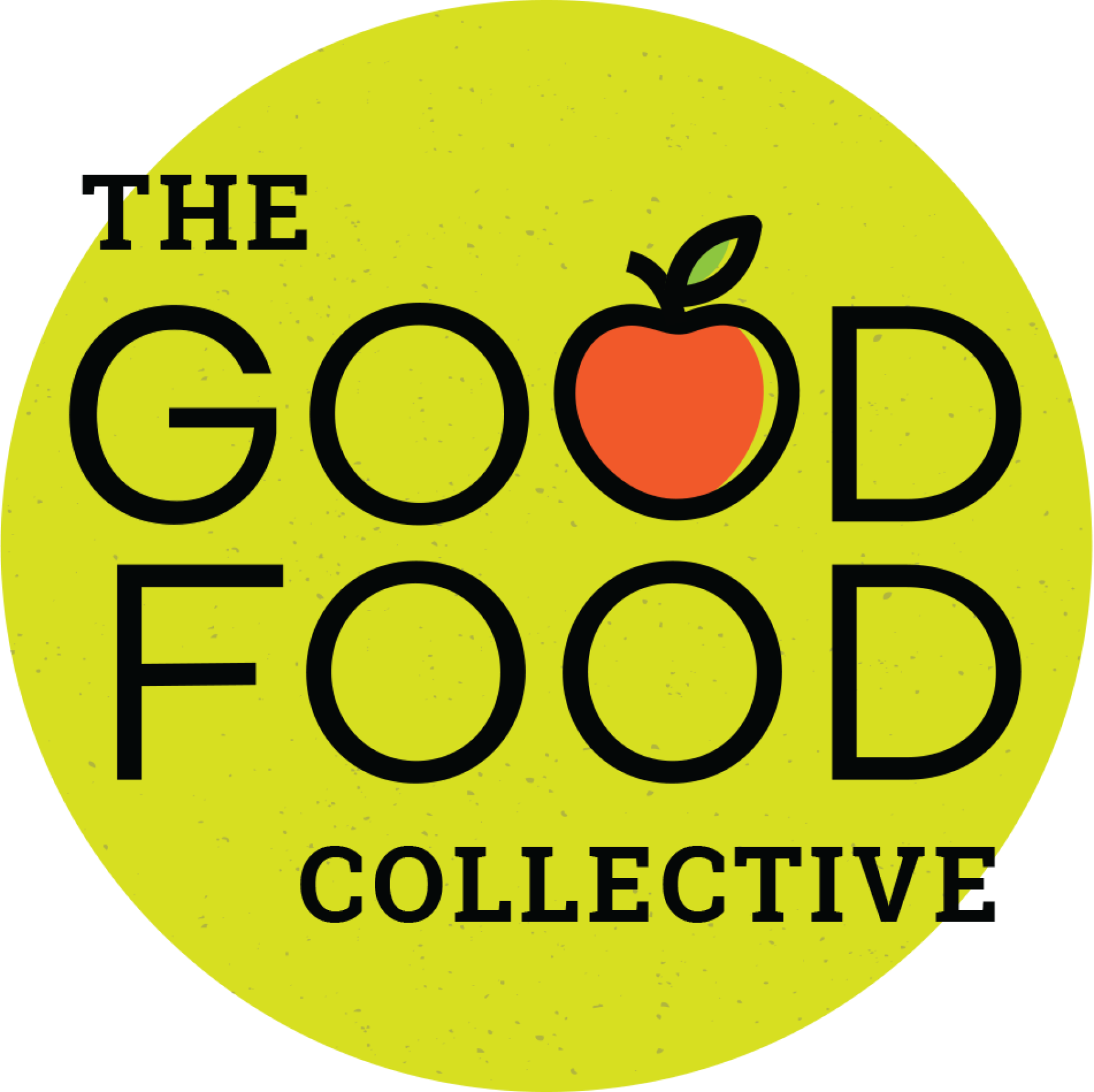A Whole-Person Approach That Meets the Moment
The Good Food Collective team sees firsthand how policy uncertainty and funding gaps affect immigrant families. “Even if you have a legal status, like being a resident or applying for asylum, there is no sense of security right now,” says Silvana Torres, a community leader with the organization. That lack of stability, she explains, fuels anxiety — especially for children who fear their parents might not return after dropping them off at school.
Rather than retreat, the team regularly convenes its Latinx-led workgroup, Voces de la Comunidad, that helps guide the collective’s priorities. Immigration-related stress comes up again and again — not just as a policy concern, but as a mental health crisis. In response, the team designs culturally relevant workshops to help people cope and rethinks how to host them in safer, more accessible ways.
“We’ve had to change how we show up,” Torres says. “People are afraid to gather in large groups. So, we’re learning how to help people feel connected, even if it’s through Zoom.” As Colorado leaders consider how to respond to harmful federal immigration policies, efforts like these remind us that investing in trusted local networks is one of the most powerful ways to protect community well-being.
Food as a Foundation for Mental Health and Belonging
Food is more than a basic need — it’s a pathway to belonging, healing, and dignity. At The Good Food Collective, programs like Fruit for Good and Roots of Health reflect how food systems can also serve as mental health infrastructure, especially in communities navigating economic instability, social isolation, or trauma. These efforts don’t just feed people — they create spaces for connection and care.
Through Fruit for Good, The Good Food Collective engages hundreds of volunteers each year to harvest surplus fruit from backyards and orchards — fruit that would otherwise go to waste. In 2023 alone, more than 300 volunteers helped recover thousands of pounds of apples, apricots, and plums. The program donated nearly 4,900 pounds to food assistance providers, while another 3,200 pounds supported local ranchers. Some of this harvest was even transformed into fruit leather and apple chips for school kids and food pantries, turning what might have been discarded into something nourishing.
Similarly, the Roots of Health program connects local farms with health care systems by providing weekly vegetable shares to frontline medical workers. In 2023, it supported 130 health care workers, circulated over 107,000 pounds of food across five counties, and contributed nearly $375,000 in local economic impact. These programs don’t just respond to hunger — they address the deeper emotional and systemic dimensions of wellness. By creating reliable access to nutritious, culturally relevant food, The Good Food Collective affirms that everyone deserves to feel cared for and connected.
As one staff member puts it, “It’s not just about fresh food; it’s about reminding people that they’re part of something bigger.”
That’s another lesson for state leaders, who are struggling to cope with major shortages in the mental health workforce. Mental well-being is about far more than clinical treatment. Relatively small investments in community-building can go a long way in improving health.
Connecting Child Care and Food Security
In La Plata County, access to early care and education remains closely tied to family stability and food access. Many parents — particularly in immigrant and Latinx communities — struggle to find safe, affordable child care. Without it, working becomes nearly impossible, and stress piles on.
Darcy, a local mother and advocate, describes how families in her neighborhood juggle multiple responsibilities with little support. “If I can go to work, I can provide a more stable, food-secure home,” she says. “With proper child care, our children will be brilliant in the future.”
To help shift the system, The Good Food Collective partnered with Latinx families to launch the Early Care and Education Task Force, completed a countywide needs assessment, and developed a multi-year strategic plan. The collective helped advocate for the passage of Colorado House Bill 24-1223, which strengthens early childhood systems and expands access to care. Today, they continue to advocate for the law’s full implementation and to protect its gains, especially as potential policy changes could threaten to roll back support for families.
The need remains urgent: 44% of young children in La Plata County still lack access to licensed care, and families with two children spend more than $21,000 a year on average for child care — a cost that is unsustainable for many. These findings come from The Strategic Plan for Early Care and Education in the LatinX Community, developed by The Good Food Collective and the La Plata Food Equity Coalition in 2023. This work to build a more equitable early childhood system also extends into how The Good Food Collective advocates for broader access to healthy meals in schools. As part of their food justice efforts, they support Colorado House Bill 25-1274, which would strengthen the state’s Healthy School Meals for All program through two 2025 ballot measures. For the collective, ensuring that all children — regardless of income or background — have access to fresh, nutritious food at school is a vital part of building a food system that supports health and learning.
By treating child care as part of food and health equity, The Good Food Collective shows how interconnected these issues really are.
What We’re Learning — and What’s at Stake
The Good Food Collective offers a window into how community-based organizations are shaping Colorado’s public health infrastructure. From designing culturally responsive mental health workshops to reframing child care as a health equity issue, the collective’s insights and leadership inform broader efforts to build just, effective systems of care. CHI continues to serve as a connector and resource hub — elevating stories like this one while helping partners apply these lessons across the state.
But this work isn’t just about adapting to gaps — it’s about imagining something better. When families fear deportation, when child care becomes unaffordable, and when community trust is shaken, the people at The Good Food Collective finds ways to nourish, connect, and protect what matters most.
At CHI, we are committed to learning from and working with community-based organizations leading this work. These partnerships show us that health equity is not just about getting through hard times — it’s about building strong systems that are based in trust, belonging, and the knowledge of the communities doing the work.
CHI's work on this project is supported by CommonSpirit Health.





